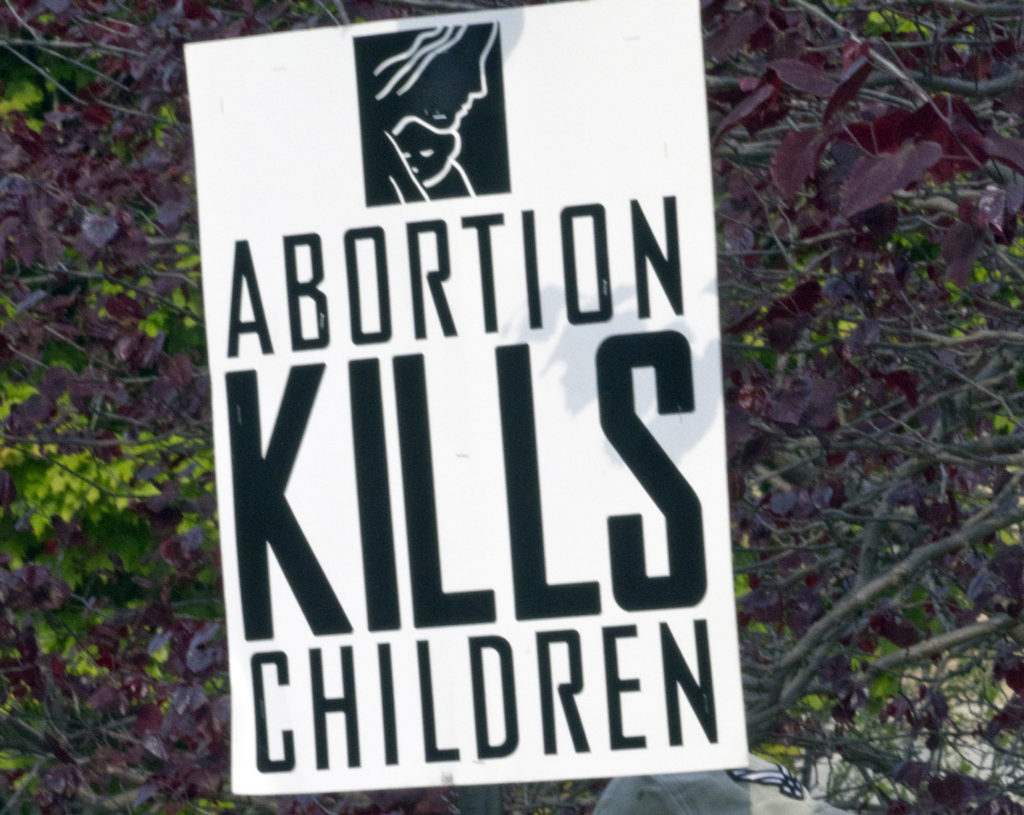
LITTLE ROCK, Ark. (BP) – Arkansas has enacted what appears to be the most stringent ban on abortion in the country in the latest state effort to persuade the U.S. Supreme Court to reverse its nearly 50-year-old decision legalizing the procedure.
Gov. Asa Hutchinson, a Republican, signed into law Tuesday (March 9) the Unborn Child Protection Act, which prohibits all abortions in the state except to save the life of the mother in the case of a medical emergency. Unlike many other state measures, the law includes no starting point in pregnancy or the unborn child’s development at which abortions are banned.
The new law urges the Supreme Court to overturn its 1973 Roe v. Wade decision that invalidated all state prohibitions on abortion, as well as a 1992 opinion that reaffirmed Roe.
The ACLU of Arkansas promised to bring a legal challenge to the ban. “Governor Hutchinson: we’ll see you in court,” Executive Director Holly Dickson said in a written statement.
In recent years, state legislatures with pro-life majorities have passed various bans on abortions early in pregnancy in the hope they will be found acceptable by the Supreme Court and possibly lead to Roe’s demise. The confirmation during the Trump administration of three justices considered to be conservative has given pro-life advocates hope the high court is ready to use a state law as the vehicle to overturn Roe.
Southern Baptist leaders commended the Arkansas government for the new law.
“Protecting vulnerable human beings from violence is the most basic responsibility of the state,” said Russell Moore, president of the Ethics & Religious Liberty Commission, in written comments. “More and more state governments are recognizing this as they move toward justice for preborn children.
“The leaders in Arkansas have done just that, and I am grateful Gov. Hutchison signed this bill into law. I support these efforts, both as an achievement for the dignity of the preborn in Arkansas and for the shaping of the nation’s conscience.”
J.D. (Sonny) Tucker, executive director of the Arkansas Baptist State Convention, expressed his gratitude to the House of Representatives and Senate, as well as Hutchinson, for a measure “that aims to protect and value the life of the unborn.”
“The churches of the Arkansas Baptist State Convention place exceedingly high value on the worth and dignity of human life regardless of gender, race, age, ethnicity or socioeconomic factors,” Tucker said in written remarks. “Arkansas Baptists believe all children should be loved and protected – both born and unborn. Through the Arkansas Baptist Children’s Home, Crisis Pregnancy Centers, foster care, and local church ministries, Arkansas Baptists continually advocate for the unborn and those born into challenging situations.”
In a written statement, Hutchinson said he would have preferred the bill include exceptions for rape and incest, but he signed it “because of overwhelming legislative support and my sincere and long-held pro-life convictions.”
The House of Representatives approved the measure by a 76-19 vote March 3 after the Senate voted 27-7 for it Feb. 22.
The new Arkansas law bans both surgical and medical/chemical abortions. The measure does not penalize a woman who has an abortion, but calls for a fine of as much as $100,000 or a prison sentence of as many as 10 years for a person providing the procedure.
Arkansas’ law is similar to a 2019 ban enacted in Alabama, which also prohibits abortions without a starting point in pregnancy. Alabama’s law, however, permits an exception for a “severe health risk” to the mother. A federal judge has blocked enforcement of the Alabama measure.
Some states have enacted laws to prohibit abortion after a fetal heartbeat can be detected, which could occur as early as six weeks into pregnancy. Arkansas previously had approved a fetal heartbeat ban that requires an unborn child to be at least 12 weeks’ gestation to be protected, according to the National Right to Life Committee. Georgia, Iowa, Kentucky, Louisiana, Mississippi, North Dakota, Ohio, South Carolina and Tennessee have passed heartbeat laws without starting times for the bans.
Missouri has enacted an abortion ban that begins at eight weeks’ gestation, while other states have passed prohibitions on abortions at 15, 18 or 20 weeks’ gestation.
The Supreme Court has been considering since September whether to rule on Mississippi’s 15-week ban on abortions but has yet to announce its intentions.
















